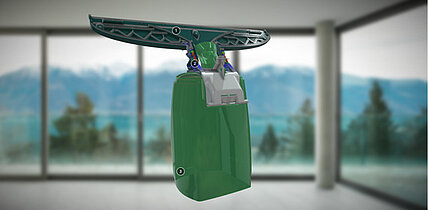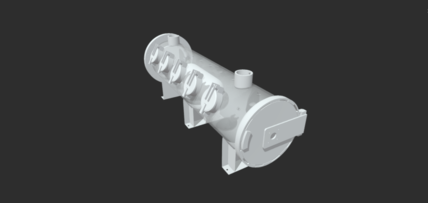Filter housing
Explosion pressure shock resistance
Filters are used to separate particles or dust from gases or liquids. Organic materials such as wood, sugar or grain, but also chemicals and light metals can be combustible. During processing, combustible dust is created during milling, grinding or cutting. Dust has a large surface area and can form an explosive mixture with the oxygen in the air and ignite.
Filter systems must therefore be designed in such a way that they can withstand dust explosions and deflagrations without failing.
The example shows a filter housing for wood dust. For a standard-compliant design, this filter housing must statically withstand an overpressure of 0.2 bar.
This can be verified either by means of a finite element analysis (FEA) or a finite element simulation (FEM) or by means of a physical test. The technical term for this is proof of explosion pressure shock resistance.
Condition 1 shows the filter housing without pressure. State 2 shows 30 % pressure, state 3 70 % pressure and state 4 100 % of the maximum pressure. In each case, the scale model is shown with the deformations scaled in color.



![[Translate to English:] PROTHESE Leg prosthesis 3D representation](/fileadmin/_processed_/e/1/csm_beinprotese_115fe5f96a.jpg)

